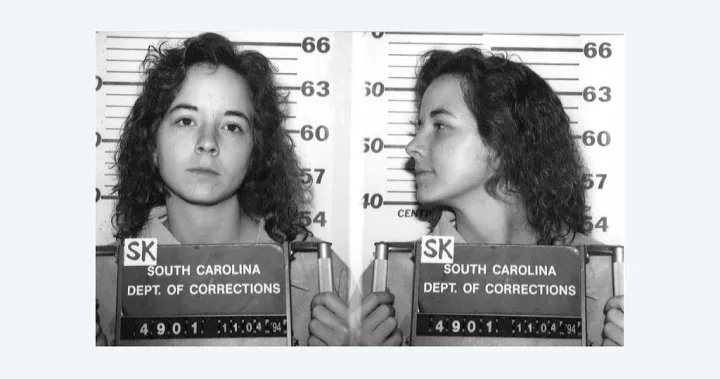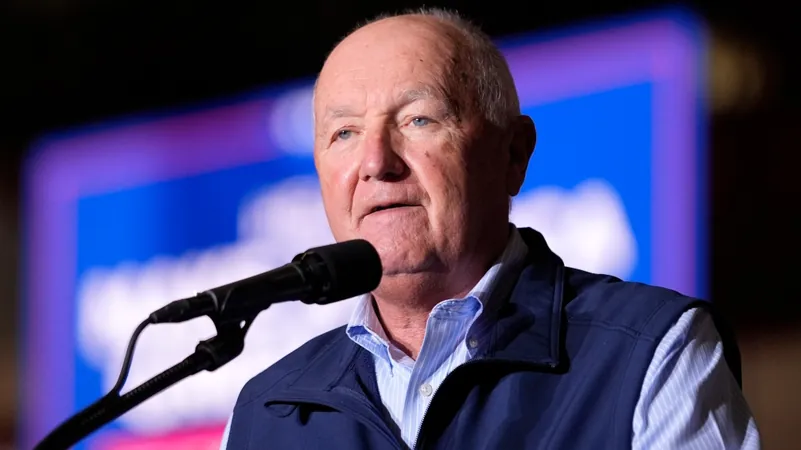
Susan Smith Seeks Parole After 30 Years for Infamous Drowning Case – Will She Be Released?
2024-11-20
Author: Benjamin
Introduction
Susan Smith, the South Carolina mother infamous for the tragic drowning of her two sons, is set to appeal for parole on Wednesday after serving 30 years of her life sentence. In what was a heart-wrenching tale of loss and betrayal, Smith, now 53, is hoping for a chance at freedom but faces significant opposition from those who remember the horrifying details of her crime.
The Crime
In October 1994, Smith drove her car into a lake with her sons, 3-year-old Michael and 14-month-old Alex, strapped in their seats, claiming she had been carjacked. For eight agonizing days, she made public pleas for their return, all the while knowing the truth: the boys were at the bottom of the lake.
Investigation and Confession
Investigators quickly began to suspect Smith's story when inconsistencies arose in her account. Carjackers typically abandon children to take a vehicle, leading authorities to question why she was let go while the boys remained in the vehicle. Ultimately, under increasing pressure, Smith confessed to the crime, revealing that she let the car roll into the water as part of a dark plan fueled by an extramarital affair.
Trial and Sentencing
Smith's emotional state during her trial drew attention, as her defense highlighted her troubled past, including family trauma. Her father had taken his own life, and she had faced severe abuse, which her legal team argued contributed to her breakdown. However, the jury found her guilty of murder, sparing her from a death sentence, but sealing her fate with a life sentence.
Life in Prison
During her time in prison, Smith has reportedly had relationships with multiple men, exchanging messages and calls that have drawn unwanted media attention. Some inmates and outsiders have expressed interest in her, with some suggesting a future together should she be released.
Parole Hearing and Opposition
Despite the challenging path Smith is attempting to take towards parole, legal experts suggest that the board may be reluctant to grant her freedom, especially given the public outcry and trauma inflicted upon her victims’ family. David Smith, her ex-husband and the children’s father, has been vocal about his opposition, stating, “30 years is not enough. She chose to murder Michael and Alex. This was her choice.”
Legal Framework and Statistics
South Carolina law stipulates that inmates serving life sentences are eligible for parole hearings every two years, but the odds are low, especially for those involved in high-profile, heinous crimes such as Smith’s. Past statistics indicate that only 8% of parole requests are granted, and opposition from victims' families further diminishes her chances.
Conclusion
As the parole board convenes, both sides will present their arguments via video link, with much of the decision hinging on the board's assessment of Smith's remorse and rehabilitation. Hopes for her release hang precariously in the balance, as advocates for justice and victims' rights urge the board to consider the long-lasting implications of her actions. The world continues to watch, waiting for what could be another shocking chapter in this tragic saga. Will Susan Smith’s quest for freedom succeed, or will justice remain steadfast in denying her another chance at life outside the walls of prison?









 Brasil (PT)
Brasil (PT)
 Canada (EN)
Canada (EN)
 Chile (ES)
Chile (ES)
 España (ES)
España (ES)
 France (FR)
France (FR)
 Hong Kong (EN)
Hong Kong (EN)
 Italia (IT)
Italia (IT)
 日本 (JA)
日本 (JA)
 Magyarország (HU)
Magyarország (HU)
 Norge (NO)
Norge (NO)
 Polska (PL)
Polska (PL)
 Schweiz (DE)
Schweiz (DE)
 Singapore (EN)
Singapore (EN)
 Sverige (SV)
Sverige (SV)
 Suomi (FI)
Suomi (FI)
 Türkiye (TR)
Türkiye (TR)